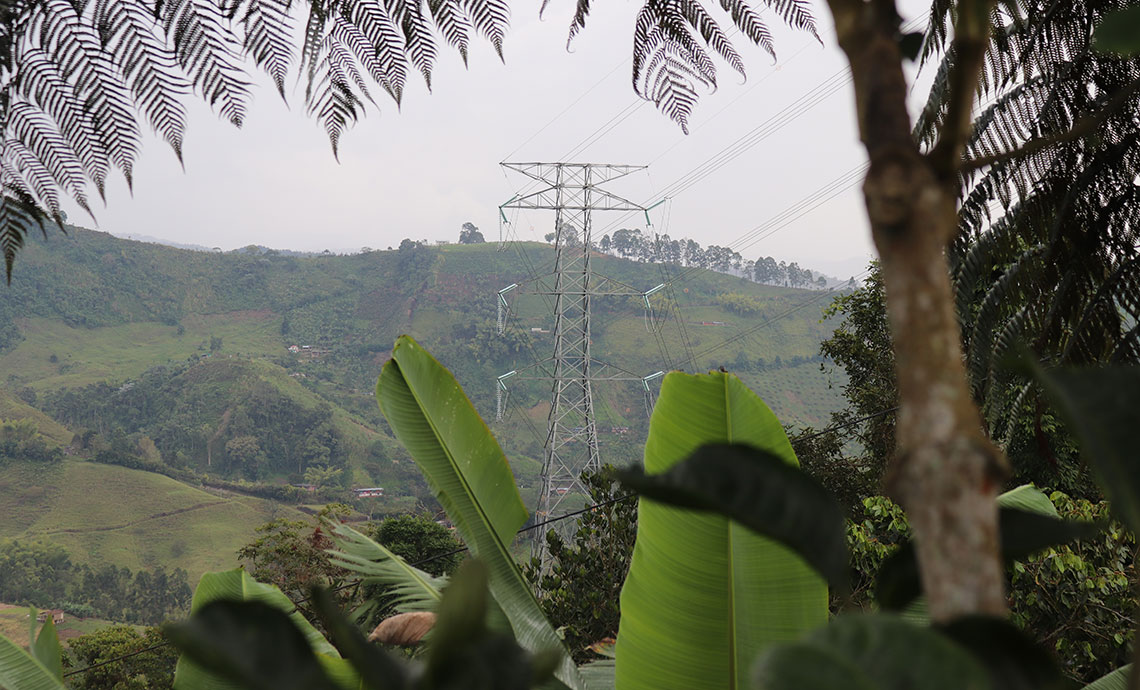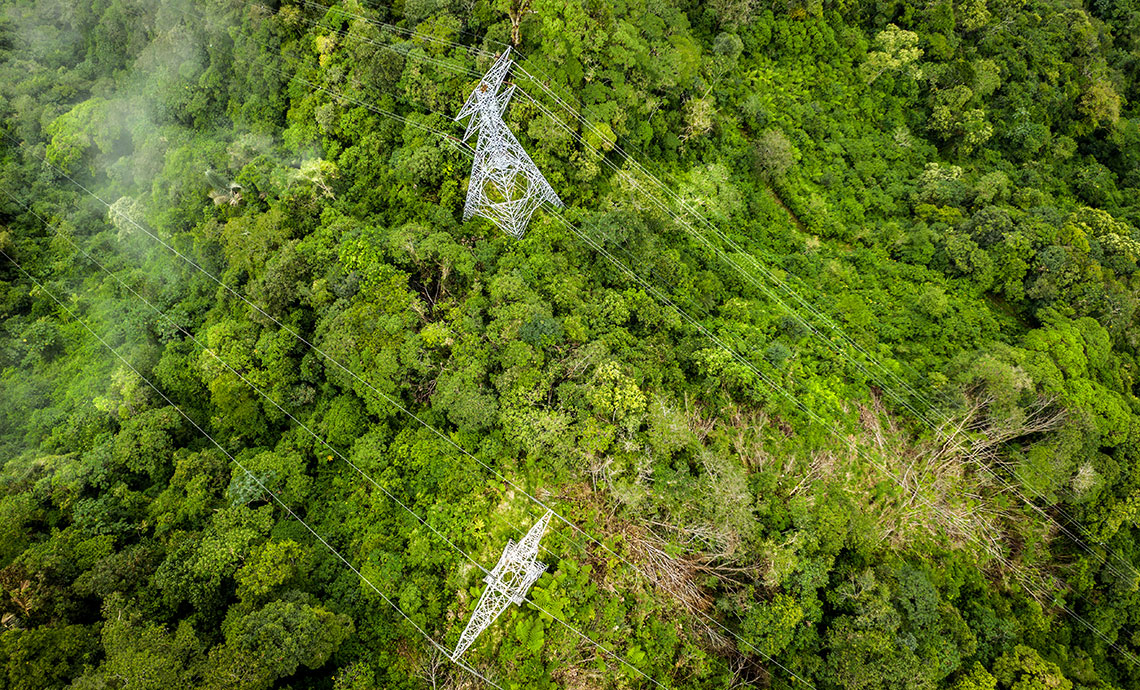
Coexistence with the infrastructure of the transmission line at our Armenia project

Coexistence with the infrastructure of the transmission line at our Armenia project
By identifying and quantifying the consumption of resources in performance of Group activities, we are able to make decisions aimed at preventing or mitigating environmental effects in the territories, and caring for and reducing pressure on the ecosystems. Consequently, operating eco-efficiency represents one of the pillars of our commitment to the environment.
We align topics such as operating eco-efficiency with the corporate strategy, based on the guidelines of the Sustainability Policy and Model, and on our commitment to optimize natural resource management and the reduction of energy losses.
We measure the performance of our eco-efficiency management by measuring the consumption of resources (water and energy) and the generation of waste during the year. This information varies depending on the construction phase of the projects.
For administrative activities, we have established maximum consumption thresholds of 1.02 cubic meters of water per person per month and 137 kilowatts per person per month, and a 5 % reduction in solid waste production.
The corresponding indicator reports include energy consumption at the administrative offices and warehouses, to generate a baseline that takes into consideration growth and the current conditions, and that will service as guidance for the development and implementation of effective reduction strategies.
Our database also includes information on the waste generated at the projects and their adequate disposal, in compliance with the environmental licenses and approved applicable regulations.
(103-2) At our administrative offices in Bogotá, we have a solar system in place to reduce energy consumption, and we have developed a recycling system that promotes separation at the source and reuse of non-hazardous wastes at the administrative offices.
| 2017 | 2018 | 2019 | 2020 |
|---|---|---|---|
| 1,028,110.03 | 1,620,513.03 | 2,616,307.51 | 2,580,316.87 |

GEB transmission line in Mocoa, Putumayo
(302-1) (303-3) (303-5) We strengthened the criteria used to measure water and energy consumption and waste generation by broadening the scope and sources.
We reduced the indicator of leaks per 100 kilometers of enabled natural gas networks by 22.6 %, thereby meeting the target established for 2020 (indicator of 2.15), and we reduced the time of arrival to respond to high-level natural gas leaks.
We avoided printing 37,937 sheets of paper through the implementation of digital signatures and notices, and we replaced 1,223 computers for equipment with greater energy efficiency.
We organized and held the Sustainability Week, with both internal and external impact. We held four activities with 559 participants, including employees and over 263 families who learned about waste and sustainability issues, and such training was provided at the 10 departments.
Our water consumption records decreased due to the transfer of some centers (CSC) to Konecta, which implied a reduction in recording.
(302-4) We surpassed the target of a 5 % reduction in electricity consumption at the administrative offices compared to 2019. As a result of the distance working arrangement, our total reported reduction was 17 %.
(303-5) Our recorded water consumption decreased by 5.92 megaliters, as a result of the mandatory lockdown declared by the Peruvian government due to the COVID-19 pandemic and the implementation of awareness raising strategies among personnel to use this resource in an efficient manner.
We obtained ISO 50001 certification from BVQI Colombia Ltda., in order to make the transition to the 2018 version of the standard.
Our challenge as a group is to establish more ambitious reduction goals in terms of eco-efficiency.
Establish baselines for water and energy consumption and for waste generation.
Implement the Water Footprint reduction plan at Cálidda.
(103-2) Recover the value of 80 % of the usable solid waste generated (hazardous and non-hazardous) at Cálidda.
(103-2) Reduce energy consumption by 3 % compared to 2020 at Contugas.
Build the Central Solid Waste storage area at Contugas for adequate waste management according to applicable regulations.
Increase the scope of the ISO 50001 certificate to all TGI’s infrastructure in operation.
Measure the water footprint at TGI and its value chain, with the aim of identifying impacts and contributions to the rational use of this resource.
Install solar panels at Trecsa’s substations at Pacífico, Pantaleón and Madre Tierra.
We have the challenge of contributing to the expansion of the electricity and gas networks in Colombia’s energy system, ensuring efficient operations, the optimization of natural resource management, and the reduction of energy losses.